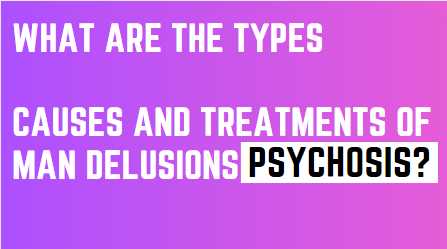What is Delusional Thinking? Understanding the Condition and Its Symptoms
Delusional thinking is a condition that affects the way people perceive and interpret reality. It is a serious mental health disorder that causes individuals to hold onto beliefs that are not based on facts or evidence. In this article, we will explore the nature of delusional thinking, its symptoms, and the treatments available for those who suffer from it.
What is Delusional Thinking?
Delusional thinking is a condition that causes individuals to hold onto false beliefs that are not based on reality. These beliefs are often characterized by a sense of certainty and conviction that is not shared by others. Delusional thinking is not the same as having a belief that is not shared by others. The key difference is that delusional thinking is not based on evidence or facts, and it persists even in the face of evidence that contradicts it.
Symptoms of Delusional Thinking
The symptoms of delusional thinking can vary depending on the type of delusion that an individual experiences. Common symptoms include:
- Paranoia: This is a feeling of extreme distrust or suspicion of others. Individuals with delusional thinking may believe that others are plotting against them or trying to harm them.
- Grandiosity: This is a belief that one has special abilities, powers, or connections that are not based on reality. Individuals with delusional thinking may believe that they are famous celebrities or have a special mission or purpose.
- Persecutory delusions: This is a belief that one is being persecuted or harassed by others. Individuals with delusional thinking may believe that they are being followed or spied on by others.
- Religious delusions: This is a belief that one has a special connection to a higher power or that they are on a divine mission. Individuals with delusional thinking may believe that they are a prophet or have a special role in bringing about the end of the world.
- Somatic delusions: This is a belief that one has a physical illness or disease that is not based in reality. Individuals with delusional thinking may believe that they have a rare disease or that they are infested with parasites.
Treatment for Delusional Thinking
The treatment for delusional thinking usually involves a combination of medication and psychotherapy. Antipsychotic medications can be used to reduce the severity of delusions and other psychotic symptoms. Psychotherapy can help individuals develop coping skills and learn to manage their symptoms.
In some cases, hospitalization may be necessary to ensure the safety of the individual and others around them. Hospitalization may also be necessary if the individual is at risk of harming themselves or others.
Conclusion
Delusional thinking is a serious mental health condition that affects the way individuals perceive and interpret reality. The condition is characterized by holding onto false beliefs that are not based on evidence or facts. The symptoms of delusional thinking can vary depending on the type of delusion that an individual experiences. Treatment for delusional thinking usually involves a combination of medication and psychotherapy. If you or someone you know is experiencing symptoms of delusional thinking, it is important to seek help from a mental health professional.






